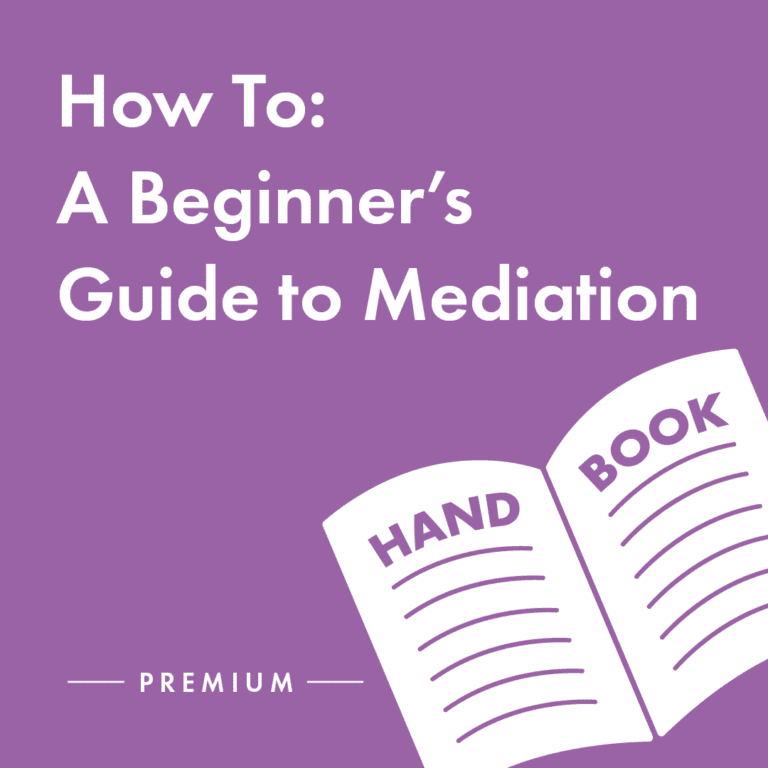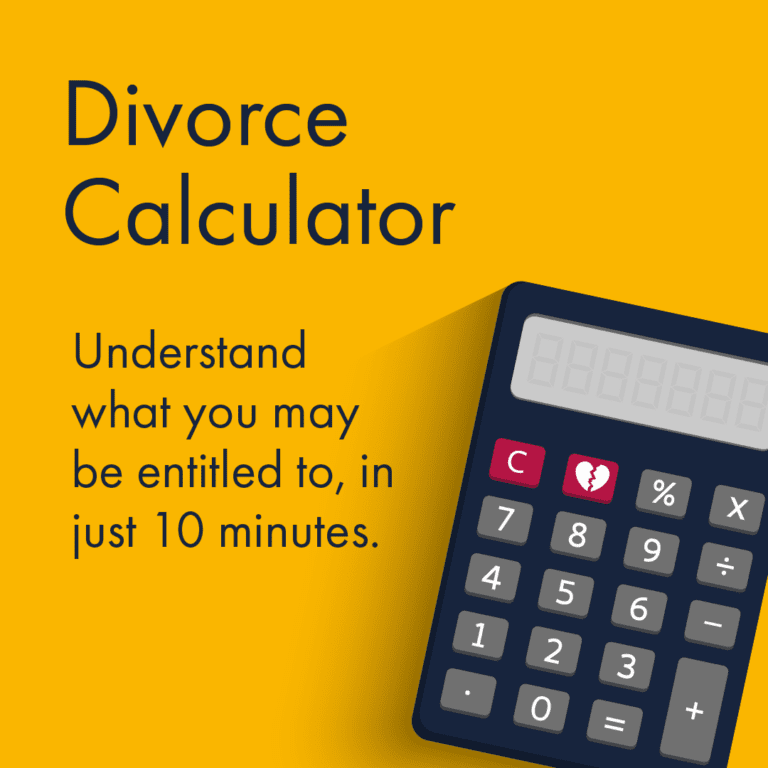What is mediation?
If you and your ex struggle to agree on the issues that arise from separation and divorce, for example division of finances or child arrangements, mediation could help you resolve your differences.
read moreIn family law, mediation is a process whereby you and your ex work with a trained mediator to reach a mutual agreement on a specific matter. Initially, you and your ex will attend a Mediation Information and Assessment Meeting (MIAM), where a mediator will explain the mediation process to you, and confirm whether mediation is suitable.
The MIAM is an opportunity for you each to speak privately to the mediator about your needs and priorities. This means the mediator is in a better position to support you in reaching an agreement, having spoken to both parties before negotiations begin.
Attending a MIAM is compulsory under the new Family Procedure Rules, unless you are exempt. However, mediation itself is not compulsory if the mediator deems it unsuitable.
What are the different styles of mediation?
|
Traditional mediation |
The parties and the mediator work together in the same room, putting an emphasis on face-to-face communication and open dialogue. |
|
Shuttle mediation |
Face-to-face communication may not be suitable for some couples, so shuttle mediation works by the mediator moving between two rooms, gathering information and facilitating negotiation. |
|
Online mediation |
Geographical or personal issues may prevent individuals from meeting in person – online mediation allows for more flexibility. |
|
Child-inclusive mediation |
Where appropriate, children can be involved in the discussion, represented by a trained child consultant, ensuring their wishes and feelings are heard in their parents’ negotiation. |
|
Hybrid mediation |
Individuals are in separate rooms, and each person is allowed their solicitor in the room with them to consult with as they move through decision-making. |
Our other out of court divorce services
 Download our free guide to mediation
Download our free guide to mediation
Why use mediation in divorce?
Mediation can be quicker, more cost-effective, and build a stronger basis for future communication, than solicitor-led negotiations or court applications. It can help to reduce conflict, stress and anxiety, and allow you and your ex to have more control over the situation, rather than a judge deciding the outcome.
read moreOur divorce mediation lawyers support with both legal issues, such as your financial settlement, and non-legal issues such as creating a parenting plan.
If you come to an agreement through mediation, it can be drafted into a legally binding document, known as a consent order, by a solicitor.

Family Mediation Lawyers
At Stowe Family Law, we employ a number of family lawyers who are also trained mediators.
Hybrid family law mediation can have a range of benefits. When our solicitors are wearing their ‘mediator hat’, they can offer an in-depth understanding of the family law process. If they’re representing you during the mediation process, they’ll be using their understanding of the mediation process to ensure you’re case is given the best chance at success.
Our Stowe mediators can offer insight into legal structures and assist in making your negotiations more informed, helping reach a successful outcome. Mediators are impartial, but they can help to guide the negotiations in a constructive way using their legal knowledge.
We have a nationwide network of other professional mediators who can support you through the mediation process.
Divorce mediation solicitors
If you are going through the family law mediation process, it is important to have legal advice alongside the advice from your mediator. Remember, a mediator can give you information, but no advice to either party. They must remain impartial and cannot give opinions on your proposals or tell you what should happen.
Stowe’s specialist team of family and divorce mediation lawyers are here to assist you with the legal aspects you’re deciding on and drafting your agreement into a legally binding document.
Meet our mediators
We offer an award-winning service
 Use the calculator
Use the calculator
How much does mediation cost?
Mediation is a cheaper alternative to court proceedings. You can discuss the exact cost of the process with your divorce mediation lawyer.
It is advised that the cost of mediation is split between both parties. This is to ensure that both you and your ex-partner have equal contributions to the sessions and are satisfied with the outcomes. The fees can be paid for via a joint account or savings, or as part of a financial agreement.
The Government has an ongoing initiative known as the Mediation Voucher Scheme. This scheme is designed to support people going through family breakdown to keep their matters out of court. The Government will contribute up to £500 for eligible cases where arrangements for children need to be made.
Alternatively, it is worth checking if you’re eligible for legal aid to cover the costs.
Why choose Stowe Family Law?
As the only national law firm fully dedicated to family matters, our expert team offers professional advice so you can make a fully informed decision about your divorce.
We are proud to be rated ‘Excellent’ on Trustpilot. Check out our reviews to see what our previous clients have said about our service.
We feature in The Legal 500 rankings and are fully authorised and regulated by the Solicitors Regulation Authority (SRA).
We keep you informed. Take a look at our support section, which features a range of helpful guides, focusing on important topics including finances and mediation.
Let's ask Legal 500
Maria Coster is an intelligent and pragmatic lawyer. She works hard for her clients. Most importantly she is a pleasure to deal with. I would recommend a client to her without hesitation and I don’t say that about many competitors.Let's ask Legal 500
Helen Miller is great to work with in order to achieve a fair resolution on financial matters. She is approachable, takes a sensible and pragmatic approach, but is certainly no pushover. She represents her clients well.Let's ask Martin
I cannot speak highly enough of Sarah McLoughlin and the exceptional service she provided throughout my family court matter. From the very beginning, Sarah demonstrated a deep understanding of family law, an unwavering commitment to my case, and a genuine care for both my well-being and the best interests of my child. Her professionalism, attention… Read more to detail, and calm, reassuring approach gave me confidence at every stage. She took the time to truly listen, explain every step of the process clearly, and always made sure I felt supported. Sarah’s dedication and tireless effort made a real difference during the most challenging time in my life. Thanks to her expert advice and strategic handling of my case, I genuinely could not have asked for a better solicitor. I would wholeheartedly recommend Sarah McLoughlin to anyone needing strong, compassionate, and effective representation in family law.Let's ask J D
I saw Sarah McLoughlin as part of my 'Next steps Meeting.' Sarah was an excellent listener giving easy to understand information in a calm manner. She broke down the next steps in a format that I felt empowered to undertake. She was knowledgeable and friendly. I was nervous at the start of the meeting but she was able to put my fears at ease an… Read mored I finished the meeting feeling relieved and smiling.Let's ask Legal 500
The Stowe Family Law team in Liverpool went above and beyond to help me through a stressful time for me. They were kind and absolutely brilliant in everything. How they planned the strategy, the team (barrister), the experts we needed (psychologists etc) so we stayed on top of things and also in the most time efficient manner.’Let's ask Legal 500
Jemma and the team at Stowe work with each client individually to achieve the best outcome for the client. They work in a holistic way with other professionals and provide support opportunities beyond the purely legal through referrals and workshops and seminars with coaches and other partners.Let's ask Mrs H
Mr Mark Christie is an absolutely fabulous solicitor and I simply can not recommend him enough. He managed to calmly and clearly control my case and simply outclassed the other side due to his attention to detail. Mr Christie is approachable, realistic but most of all extremely diligent and it is this quality that helps him to win cases. I would 1… Read more00% recommend.Common questions about family law mediation
Common questions about family law mediation
-
What is the purpose of mediation?
Mediation is a process that focuses on communication between separating parties and fosters an environment in which decisions can be reached mutually. This is beneficial for many couples and helps build a solid communication foundation for moving forward, particularly where the exes need to maintain a co-parenting relationship.
Mediation is an opportunity to build long-term communication foundations and talk about the unique issues facing you in your situation. The family court cannot help with personal aspects, so mediation is key for support to develop systems you can use going forward where there will not be a legal framework to guide you.
The Family Justice System is keen to keep couples out of court. This will help reduce the pressure on the family courts, but ensure each case is dealt with in a caring and tailored way. Various forms of non-court dispute resolution (NCDR) are available, and there are multiple options within mediation itself to suit the needs of the individuals.
-
Do I have to have mediation before divorce?
No, mediation is not compulsory, although strongly encouraged where appropriate.
Attending a Mediation Information and Assessment meeting is compulsory, unless you fit one of the exemption criteria as defined by the Family Procedure Rules. At this meeting, your case’s suitability for mediation will be assessed.
Find out more about the Family Procedure Rules.
-
What is the mediation process?
Whilst your circumstances are unique, there is a general structured process involved in mediation. This usually looks like the following:
- Initial appointment: Known as the MIAM, a mediator will meet with the person who made the initial contact, for an individual meeting discussing the appropriateness of mediation for their situation. The mediator will assess the suitability of the dispute for mediation. At this meeting, the next steps will be discussed, and there will be an opportunity to discuss the costs, plan, and what type of mediation would be best. Your ex-partner will likely be invited to an initial meeting, one-on-one with the mediator.
- Both you and your ex must agree to participate in mediation and sign an agreement that sets out the process, and confidentiality.
- There may be things you need to do to prepare for your mediation sessions. Please see below.
- Your mediation session will look different depending on what kind of mediation you opt for. However, the first session will involve the mediator explaining the rules and structure and working out an agenda with the two of you. The mediator will facilitate the negotiation. These sessions usually last two hours, and the number of mediation sessions you need will depend on your situation and how successfully you can come to a mutual decision.
- If you reach an agreement, the mediator will draft this into a memorandum of understanding, which can then be converted into a legal document by a solicitor.
-
Do I need to prepare anything ahead of the mediation process?
It is important to think about what you want to get out of the mediation process before you start. Identify the issues which you and your ex-partner are struggling to agree on and make sure to discuss these during the joint meetings. For example, this could be a single issue, such as what to do with the family home, or various concerns around how to split your assets generally.
If you are trying to reach an agreement on issues relating to money or property, you will need to fill out a financial disclosure form. Your mediator will discuss how to do this, and you should also seek legal advice from your mediation support lawyer to ensure any documents and forms are correct.
-
How long does mediation take?
Mediation sessions are usually 90 minutes.
The number of sessions needed to reach a conclusion depends on your situation. Some people can conclude their negotiations in one session; others may need more. You may also require multiple sessions if you need to discuss both finances and child arrangements, as these will need to be negotiated separately.
-
What happens once we’ve come to an agreement?
Once an agreement has been reached, your mediator will write a ‘memorandum of understanding’. This is a document that confirms your agreement in writing; both parties will receive a copy.
If your agreement is relating to money or property, you should take your memorandum of understanding to a solicitor, who can then draft this into a financial consent order, to be made legally binding by the court.
If mediation has involved child arrangement negotiations, a parenting plan may be drawn up.
-
What if we can’t reach an agreement through mediation?
If you find that you can’t come to an agreement with your ex-partner, we recommend you talk to a specialist solicitor who can advise you on what to do next.
There are still options for you if you’d rather avoid going to court. For instance, you could consider a ‘collaborative law’ session, where you’ll work with a solicitor to reach an agreement.
You could also try family arbitration. This is where an arbitrator – similar to a judge – will come to their own decision on the things you and your ex-partner can’t agree on.
-
What should I do if my ex-partner won’t come to mediation?
Due to changes to the Family Procedure Rules in April 2024, divorcing couples will need to set out their views on non-court dispute resolution, including mediation, in open correspondence. The idea is for couples to genuinely consider alternative dispute resolution, rather than heading straight for court.
Mediation is not compulsory, but you will need to prove why you are unable to take part in it. You can no longer refuse to attend without good cause.
If your ex still refuses to consider mediation, seek legal advice.
-
When is mediation not appropriate?
There are different types of mediation that cater for separating couples in different situations, including shuttle mediation where parties do not need to meet face-to-face. However, mediation may not be appropriate if your relationship was abusive or in some other situations.
A good mediator will assess your suitability for mediation. Seek legal assistance if you are unsure.
Latest advice
Newsletter Sign Up
Sign up for advice on divorce and relationships from our lawyers, divorce coaches and relationship experts.
Privacy Policy




















